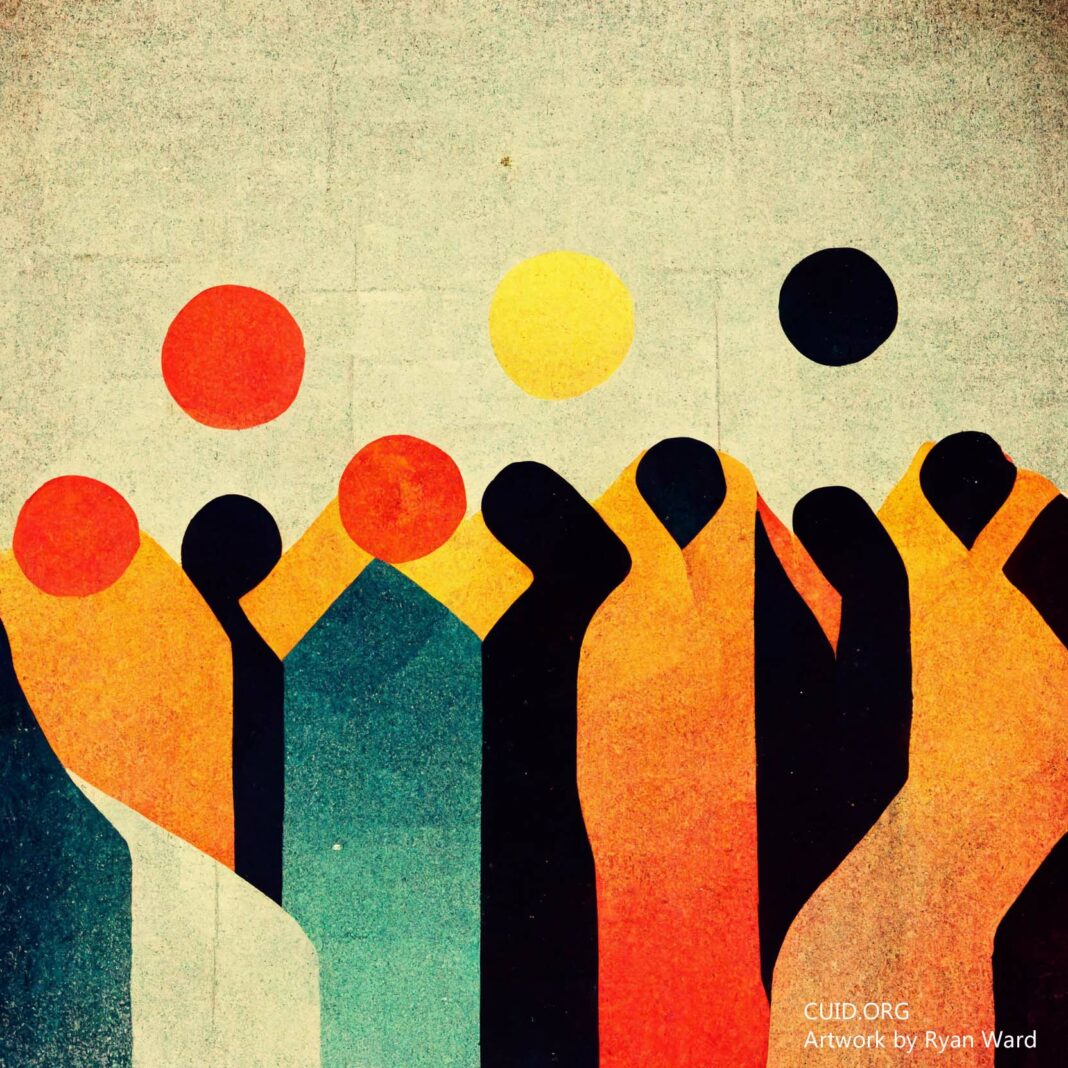By Tads Ciecierski-Holmes and George Holmes, artwork by Ryan Ward.
Many of us students experienced a stressful week in mid-March as the flood of COVID-19 emails came through from the University. I had to write one of my own, as the Director of a student-led charity in Cambridge, to all the volunteers working for the Cambridge Development Initiative (CDI) who were due to travel to Dar es Salaam to work on community development projects in collaboration with our Tanzanian student partners at Knowledge and Innovation for Technological Enterprise Dar es Salaam (KITE). It became quickly apparent after the March meeting of CDI’s trustees that the summer project period in Tanzania we had planned was cancelled. One trustee quite wisely said, “it is not a matter of if, but when COVID will reach Tanzania” – and indeed, Tanzania soon reported its first case of COVID-19.
However, out of the disappointing circumstances, rapid shift to remote working, and personal hardship for everyone involved in the UK and Tanzania, came new opportunities for CDI and KITE to, once again, change how student volunteering is done. Namely, becoming catalysts for Tanzanian-led development projects, and supporting the leadership of local actors working in their communities.
The CDI Perspective
CDI was founded in 2013 by students who, like many who are looking to work in the Development sector, have had volunteering experiences that left them sceptical about student volunteering in general. Voluntourism indeed comes under severe criticism for doing more to bolster the CVs of volunteers, while doing little to promote solutions to challenges faced by individuals living in poverty in low-income countries. So the challenge was: how can students become real agents of change, implementing innovative and impactful community development projects?
Seven years and hundreds of UK and Tanzanian volunteers later, CDI has made great strides. Some of its biggest successes are the implementation of a Simplified Sewerage network in an informal settlement in Dar es Salaam that is now being maintained and expanded by a local water authority, and the founding of KITE Dar es Salaam (formerly CDI Tanzania), a student-led Tanzanian NGO with whom we work closely to implement our health, education, entrepreneurship, and water, sanitation and hygiene (WaSH) projects. CDI and KITE have demonstrated that students can power change, and they have inspired the foundation of similar student-organisations in Toronto, Nairobi, Oxford and Gulu.
Along with CDI’s successes, there are of course failures. While failure is to be expected when piloting projects that are breaking new ground, some project streams still fell into the category of bolstering the CVs of volunteers and not addressing the issues faced by those in the communities we serve, even with the best of intentions from the CDI and KITE teams. They either lacked impact or sustainability, which could be attributed to, amongst other things, a lack of expertise, resources, and support from local actors.
Our 2019-20 strategy attempted to address these issues. We formed new partnerships with development research groups and Tanzanian organisations to plug gaps in expertise and funding. We put an emphasis on prioritizing Tanzanian perspectives and ensuring that the projects are Tanzanian-led. In this light, the pandemic accelerated our strategy: with CDI volunteers no longer working on the ground, further space opened up for our Tanzanian partners to take ownership of projects, and for CDI to work remotely in a supportive capacity from the UK.
The KITE Perspective
KITE Dar es Salaam was formally founded in 2017, and registered as an NGO in Tanzania by CDI Tanzania alumni and other Tanzanian students. There is an abundance of talented and engaged students in Dar es Salaam who wish to apply what they’ve learned in the classroom to solve problems faced by local communities. For instance, it is the technical expertise of the KITE engineers that led to the design and construction of low-cost handwashing facilities for primary schools in the informal settlement of Vingunguti over the past summer, and their ability to engage with local communities allows both KITE and CDI to understand problems facing local communities and to research potential solutions.
So far, they have always had CDI by their side. KITE’s Director comments that working alongside CDI is an interactive and impactful experience, because of the knowledge-sharing that takes place between CDI and KITE: CDI shares new ways of working, such as the use of software and other tools that may be more common in the UK than in Tanzania; KITE brings cultural insights, with CDI volunteers learning about the lived experiences of the urban poor in Dar es Salaam; together, both learn new skills when implementing the appropriate research and Monitoring and Evaluation methodologies for their projects.
Responding to COVID-19 was therefore a difficult experience for the Tanzanian team. Not only did the universities in Dar es Salaam close for two months, leading the KITE team to start working remotely on project plans, but they also had to plan for a summer without the CDI half of the team. This did not stop their resolve. While some timelines had shifted due to the closing of universities, KITE could still advance our planned projects in health; education, entrepreneurship; and WaSH, and recruit a larger Tanzanian team to make up for the lack of CDI volunteers.
Despite the challenges they faced, the KITE team successfully implemented two WaSH projects constructing handwashing facilities in schools lacking sanitation facilities, ran hand-washing and soap-making workshops in schools around the Vingunguti district of Dar es Salaam, and furthered research into four new initiatives for implementation in 2021. In the meanwhile, CDI continued to work quietly in the background, providing advice on strategy, project planning and design, and fundraising support – enabling KITE to do their best work.
The Future of Student-Powered Initiatives
KITE’s success, with CDI’s support, has led to real positive impact. While evaluations of the current projects still need to take place, we have already received positive feedback from the school students and teachers we are working with. More importantly, we have successfully piloted a new way of working for both organisations: Cambridge students do not need to be working on the ground in order to contribute to projects, putting the power in the hands of Tanzanians. Student collaboration, even in the time of a global pandemic, is still a force for change – and the way student volunteering is done has changed for us once again.



